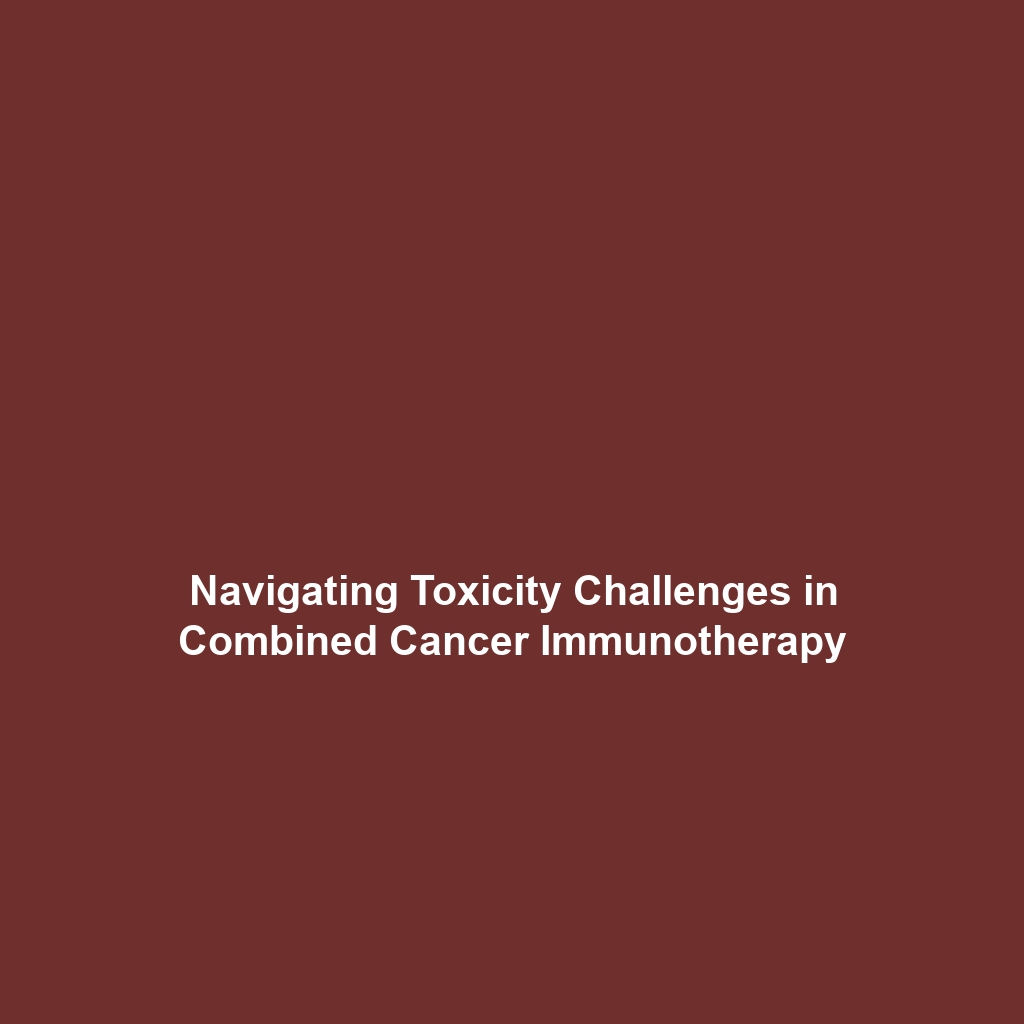Immunotherapy and Chemotherapy: Synergistic Effects of Combining Treatments
Introduction
In recent years, the integration of immunotherapy and chemotherapy has emerged as a promising strategy in the fight against cancer. The synergistic effects of combining these two approaches can enhance treatment efficacy, improving survival rates among cancer patients. This article delves into the significance of this combined therapy within the broader context of immunotherapy & cancer, illustrating how their interaction offers hope for better therapeutic outcomes.
Key Concepts
Understanding Immunotherapy
Immunotherapy leverages the body’s immune system to combat cancer cells, making it different from traditional treatments. Key principles include:
- Activation of immune cells such as T-cells and natural killer (NK) cells.
- Monoclonal antibodies designed to target specific antigens on cancer cells.
- Cancer vaccines that stimulate an immune response against tumor-associated antigens.
Understanding Chemotherapy
Chemotherapy utilizes powerful drugs to kill rapidly dividing cancer cells. Key principles include:
- DNA damage to disrupt cancer cell replication.
- Targeting specific phases of the cell cycle to maximize efficacy.
- Combination regimens that use multiple agents to enhance efficacy.
Synergistic Effects in Combining Treatments
The synergistic effects emerge when the mechanisms of immunotherapy and chemotherapy complement each other, often leading to an improved anti-tumor response. For instance, chemotherapy can enhance immunogenicity of tumor cells, making them more visible to the immune system.
Applications and Real-World Uses
The combination of immunotherapy and chemotherapy has shown promise in various real-world applications, particularly in the treatment of malignancies such as:
- Non-Small Cell Lung Cancer (NSCLC): Studies indicate improved survival rates when combining pembrolizumab (an immunotherapy) with platinum-based chemotherapy.
- Melanoma: Research supports the use of nivolumab (an immune checkpoint inhibitor) alongside traditional chemotherapy, yielding better outcomes.
- Hodgkin Lymphoma: The combination has been effective in patients who have relapsed after initial treatment.
Current Challenges
Despite promising outcomes, the synergistic combination of immunotherapy and chemotherapy faces several challenges, including:
- Variability in patient responses to treatments.
- Immune-related adverse events and toxicities associated with both treatments.
- The complexity of optimizing timing and dosing for combination therapies.
- Limited understanding of the underlying mechanisms driving the synergy.
Future Research and Innovations
As research evolves, future innovations may include:
- Development of biomarkers to predict responses to combined therapies.
- Advancements in personalized medicine to tailor combinations for individual patients.
- Exploration of novel agents that enhance immunogenicity alongside chemotherapy.
- Clinical trials designed to assess optimal combination strategies in various cancer types.
Conclusion
The synergistic effects of combining immunotherapy with chemotherapy present exciting avenues for enhancing cancer treatment efficacy. While challenges remain, ongoing research is paving the way for innovative strategies that could transform patient outcomes. For more insights into cancer treatments, explore Immunotherapy Advances and Chemotherapy Techniques.



